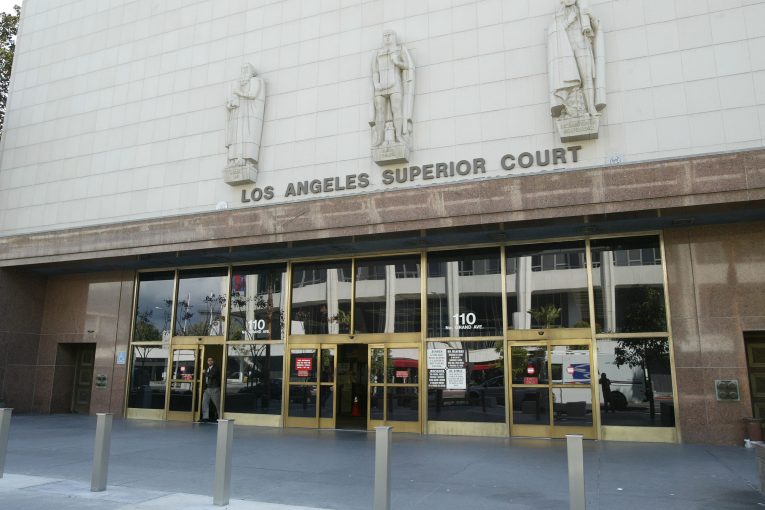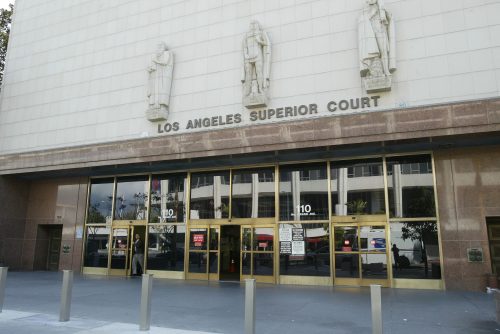

By Nico Ludwig-Stock & Bergen Greenley
LOS ANGELES, CA – During closing arguments in a driving under the influence trial Wednesday afternoon at Los Angeles County Superior Court/Metropolitan Courthouse this week, the defense argued officers improperly administered BAC and field sobriety tests and failed to remove the accused’s eyeglasses before testing his eyes.
The accused was charged with two misdemeanors: Driving under the influence and driving under the influence with a Blood Alcohol Concentration (BAC) of more than 0.08.
Once the jurors entered the courtroom, Judge David Fields delivered jury instructions, reminding jurors when evaluating field sobriety test results, the jury may consider whether the police officer followed the regulations of the California Department of Public Health in administering the test.
Deputy District Attorney George Sami began by restating the facts of the case. On Aug. 5, 2023, at 2:30 am, California Highway Patrol officers observed a truck going 90 miles an hour, and crossing adjacent lanes. This could be seen on video from the camera on the patrol vehicle. The officers testified that this erratic driving was consistent with someone driving under the influence.
According to DDA Sami, the two officers in the patrol car stopped the vehicle at 2:34 a.m. Inside, they found one person—the accused. The officers observed signs of intoxication including “slurred speech, red watery eyes, and the smell of alcohol.”
As DDA Sami explained, when the officers first asked the accused if he had been drinking, he responded “earlier,” though later changed his answer to “no” when they began performing field sobriety tests on him.
The officers said they conducted various tests on the accused. They had the accused follow their fingers with his eyes, but officers claimed he could not do so. They had him to stand on one leg, and testified he swayed from side to side and put his foot down several times. They said he failed the walk and turn test several times.
According to DDA Sami, the accused’s poor performance on these tests indicated “he was mentally and physically impaired.”
Now more suspicious the accused was intoxicated, the officers said they asked him to submit to a voluntary test that would measure his blood alcohol content and he agreed. While it is standard to wait 15 minutes before administering such a test, in order to ensure mouth alcohol from recent drinking does not affect the results, DDA Sami noted scientific studies show mouth alcohol dissipates completely after eight to 10 minutes.
As DDA Sami remarked, the test showed that the accused had a BAC of 0.112. Two minutes later, a second test administered by the officers showed he had a BAC of 0.114.
At the police station, they conducted one more chemical breath test which showed he had a BAC of 0.11, said DDA Sami, adding if a chemical test is taken within three hours of driving, it can be inferred that the accused had a BAC of 0.08 or more while driving.
The defense, in closing, charged the case is based on assumptions—by the prosecution, the police, and the criminalist who testified. She argued that though the accused was speeding and driving recklessly, he was not intoxicated over the legal limit, and was on his way to work a night shift at the Amazon warehouse and was tired and in a hurry.
He drove safely and pulled over right away when the police turned their lights on, even using his turn signal and hazard lights, said the defense.
Though the police said the accused was showing signs of intoxication, the defense argued the accused was speaking clearly and responding quickly, followed instructions, asked clarifying questions, completed divided attention tasks, and even had a detailed conversation with the officers about home renovations.
The defense also explained the accused’s failure of the HGN (eye movement) test was not due to intoxication, rather it was not administered according to NHTSA (National Highway Traffic Safety Administration) standards as he did not remove his eyeglasses. According to the NHSTA, this makes the results of this test invalid. His eye movement could also be attributed to exhaustion, caffeine, or other medical conditions.
The defense also told the jury the accused’s failure of the Field Sobriety Tests does not indicate intoxication, as these tests are designed to fail—even for sober people. She said that there are a multitude of factors that could cause him to fail or lose balance; nerves, exhaustion, balance and coordination issues, and athletic ability. Through all of these tests she claimed that he listened, followed directions, and asked clarifying questions, further indicating he was not intoxicated.
A large part of this case was his measured BAC, and although it was measured four different times as over the legal limit, the defense claimed not only was this test taken too early, but there is also no way to know for sure what his BAC was at the time that he was actually driving.
The defense also stated the PAS (Preliminary Alcohol Screening) test was not given in accordance with Title 17, which states that there must be a 15-minute observation period given before the test is administered—in this case, the accused was only given 12 minutes, and protocol must be followed, or results are unreliable.
The defense noted there is no video evidence of the field sobriety tests or the alcohol breath tests, and that the prosecution needed to prove their case beyond a reasonable doubt, and it had not done so. The burden of proof was on the prosecution to prove the accused guilty, not on defense to prove him innocent.